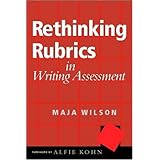Yesterday I wrote a post about what helps me get grounded when thinking about school reform--imagining my daughters' experience.
My husband, who supports my ideas but does not live in my head, sent me this comment:
"I’m all for your view of education, but I think that your three NO’s are going to lose support, rather than gain it.
Vague statements like that can quickly be damaged with examples that contradict those statements—“Biology can be looked up on the internet, but my daughter is going to be a doctor”…”Some good learning may exist outside of school, but what I learned in school helped me become a doctor….”
I’d suggest always inserting an example after each NO, so that people better understand your views. Otherwise, statements like your NO,NO, NO sound more like the angry parent than the hard working educator. Examples will make your blog worth reading…"
Thanks for this feedback. Here's my revised version...
Do I want them sitting at their desks doing work other people deem important? No. But I DO want them hard at work learning how to think, how to analyze, how to appreciate different perspectives. I DO want them to have choice in how they learn and how they share what they have learned. And I DO want them to learn to assess their own strengths and areas for improvement. I want them to be able to handle any academic challenge with confidence and competence. I DO want them to have the support of talented teachers who can nurture and guide them as learners and people.
Do I want them learning content that is readily available to them all the time? No. But I DO want them learning all of this (and more!):
Creativity and
Innovation
Using knowledge and understanding to create new ways of thinking in order to find solutions
to new problems and to create new products and services.
Critical Thinking and
Problem Solving
Applying higher order thinking to new problems and issues,
using appropriate reasoning as they effectively analyze the problem and make
decisions about the
most effective ways to solve the problem.
Communication
Communicating effectively in a wide variety of forms and
contexts for a wide range of purposes and using multiple media and
technologies.
Collaboration
Working with others respectfully and effectively to create,
use and share knowledge, solutions and innovations.
Information
Management
Accessing, analyzing, synthesizing, creating and sharing
information from multiple sources.
Effective Use of
Technology
Creating the capacity to identify and use technology
efficiently, effectively and ethically as a tool to access, organize, evaluate
and share information
Career and Life
Skills
Developing skills for becoming self-directed, independent
learners and workers who can adapt to change, manage projects, take
responsibility for their work, lead others and produce results.
Cultural Awareness
Developing cultural competence in working with others by
recognizing and respecting cultural differences and work with others from a
wide range of cultural and social backgrounds.
Beers, Sue Z. “21st
Century Skills: Preparing Students for THEIR Future.” 21st
Century
Skills.
Do I want them doing work that does not exist outside of school? No. But I do want them learning how to make, create, innovate, experiment, reconfigure, organize, explore, imagine...
I want school to be a training ground for the work that will be expected of them when school is over. Where working together, tackling challenges, using resources, and inventing new possibilities will equal success and fulfillment.
I hope this sounds more positive and less grumpy and stubborn!














